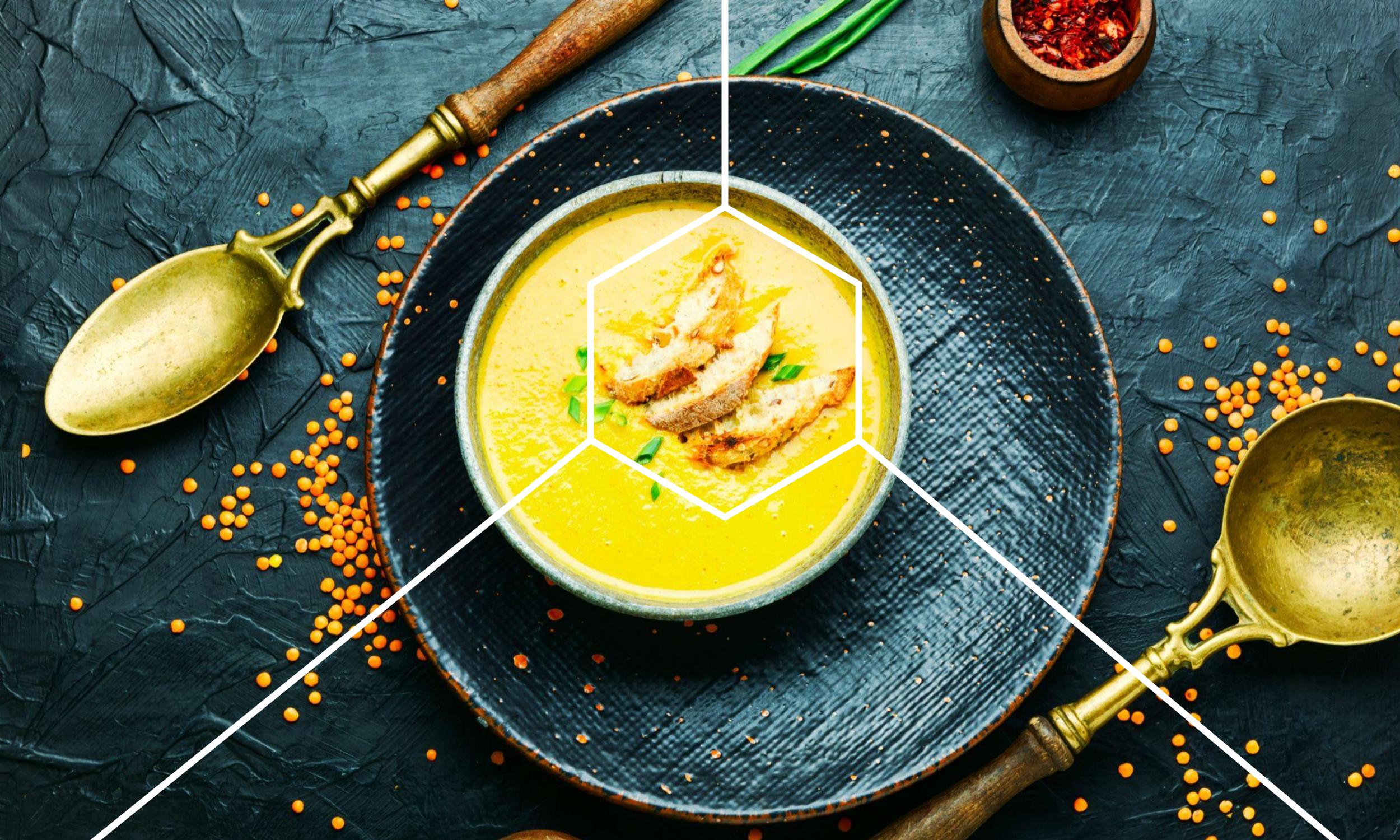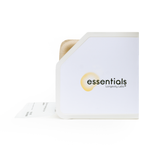
Detoxing is an important process that keeps your body healthy. Everyday we’re exposed to environmental toxins which can negatively affect our health. These toxins cause stress within our bodies, and over time this stress can be damaging to our cells. Did you know that your body naturally filters and removes the accumulated cellular debris from your cells? Your body removes cellular debris and damaged organelles through a process called autophagy. Here's a bit about the process, autophagy benefits, and how to induce autophagy in your body.
What Is Autophagy?
Autophagy is the body’s natural process of clearing your cells of damaging cellular material. When you visit a spa for a body wrap or facial, the heat and natural herbs draw out toxins from your skin. Autophagy works in a similar way. Millions of cells in your body work in unison to help your organs function. Over time our cells accumulate cellular debris which can damage organelles among other cellular material. Autophagy seeks out damaged cells with dysfunctional and damaged organelles and recycles them for energy, removing them from the damaged cell. This process rejuvenates your cells, allowing them to function without impairment. The literal definition of autophagy means “self-eating.” While this sounds strange, the process is greatly beneficial for your health.
What Activates Autophagy?
When does the body go into autophagy? Autophagy is an ongoing process, happening in your body all the time. There are however, ways you can help your body improve this process. Let’s look at what activates autophagy.
Exercise
We know exercise has numerous benefits. The more you move the better you feel. Getting plenty of exercise also helps rejuvenate your cells. This can activate autophagy and filter out toxic buildup.
Fasting
There are several ways you can integrate fasting into your diet plan. Fasting doesn’t necessarily mean no eating. Intermittent fasting, eating between certain hours, can help trigger the enzymes that promote autophagy. Eating too many calories slows down the process. When your cells are deprived of nutrients they look for other sources of energy, and begin to recycle and use up toxic matter. Eating an earlier dinner or a later breakfast is a great way to start intermittent fasting.
Nutrition
Food can both help and harm your health. Eating foods that promote autophagy that are high in lean protein with dark vegetables is your best option. High-fat foods can cause other issues like inflammation and cardiovascular disease. Certain foods contain higher amounts of polyamines which play a vital role in cellular health. One of the primary polyamines responsible for cellular health and homeostasis is spermidine. Eating a spermidine-rich diet is a fantastic way to improve your cellular health.
Does Coffee Promote Autophagy?
Many people struggle without their morning cup of coffee. A caffeine boost can give you energy and help you focus. Does coffee affect autophagy? Research does show there are benefits of drinking coffee that promote autophagy. The benefits increase during times of intermittent fasting. While caffeine is not necessary for autophagy, a cup or two can speed the process.
Coffee contains powerful antioxidant properties that boost metabolism and reduce diabetes. If you add coffee into your fasting plan, choose options that are free of additives and sweeteners.
What Foods Are Recommended for Autophagy
What foods promote autophagy? Eating healthy foods is important for your overall health and wellness. Autophagy is always working in your body even though you never think about it. Your metabolism is affected by how well it functions. You can eat certain foods that are recommended for autophagy to increase longevity and stay healthy. Some foods include:
- Ginger and turmeric - reduce inflammation
- Coffee and green tea - boost metabolism and contain antioxidants
- Garlic - protect against heavy metal toxins
- Reishi mushrooms - enhance immunity
- Elderberries and pomegranate - loaded with antioxidants
- Ginseng - boosts energy and lowers blood sugar levels
These are a few foods that are recommended for supporting autophagy. You can eat these foods or take them in supplement form.
Foods That Boost Autophagy
What can I eat during autophagy fasting? Certain foods are recommended for autophagy that also boost the process and promote renewal. Let’s take a deeper look into these foods that boost autophagy.
Keto-Friendly Foods
The Keto, low-carb, diet is a popular diet among many people today. Eating Keto-friendly foods just means focusing on higher fats and fewer carbohydrates. Many people choose this diet plan to help them eliminate sugars. Eating healthy fats is a better way to draw natural energy from food.
High Protein
If you’re not ready for fewer carbohydrates, try eating more protein first. This helps you naturally reduce your carbohydrate intake and your sugar. So people choose a protein fast. This means on some days you eat about 10-20 grams of protein and more vegan options. On other days, you eat more protein. Reducing carbohydrate intake helps lower insulin levels, which aids in the autophagy process.
Omega-3 Foods
Omega-3 fatty acids are among the top choices for cellular health. They promote healthy cell growth and brain function. You can find omega-3 fatty acids in foods such as salmon, tuna, nuts, seeds, and flaxseed oil
Foods That Stop Autophagy
Eliminating foods that stop autophagy is just as important as eating foods that boost the process. Refined sugars and genetically modified foods are harmful groups. There are other foods that will slow down cellular renewal.
- Saturated fats
- Oils
- Sugars
- Dairy
- Processed foods
These groups cause inflammation in the body and damage the mitochondria. If the mitochondria can’t function, autophagy slows down.
Top 5 Foods That Stimulate Autophagy
We’ve looked at a few food groups to avoid because they are harmful to cellular health. Now let’s look at the top 5 foods that stimulate autophagy and promote lasting health.
Coffee and Green Tea
Whether you’re enjoying full caffeine or a decaffeinated cup, these drink options can stimulate autophagy. They both boost metabolism and contain healthy antioxidant properties.
Curcumin
If you’re familiar with turmeric, you’ll enjoy adding curcumin to your diet. Curcumin is a natural compound in the stalk of the turmeric plant. When you combine curcumin with a dose of turmeric, you get better curcumin absorption. The easiest option is taking both herbs in supplement form. You also juice turmeric roots and drink them.
Olive Oil
Olive oil has numerous benefits. Most people use olive oil when cooking or in salad dressings. Olive oil can help increase autophagy in the brain and reduce nerve damage.
Cacao
Dark chocolate in its rawest form can also stimulate autophagy. It’s very good for detoxifying your liver and preventing cardiovascular disease. Healthy bacteria boost gut health and reduce your risk of diabetes. You can buy cacao in powder or butter and use it in cooking.
Spermidine Can Help
Eating foods that stimulate autophagy is the best way to promote better health and longevity. But sometimes the body needs an extra boost. That’s where spermidine supplements can help. Your body naturally produces spermidine, which is a natural molecule. It works in your body to slow aging and promote autophagy. As the body ages, the production of spermidine begins to decline. While many of the foods you already eat contain spermidine, getting your daily dose through diet alone can sometimes be tricky. Taking a spermidine supplement ensures you're getting the recommended daily dose of spermidine, boosting autophagy and keeping you healthy.







